 In 1747, Samuel Johnson (1709-1784), a poet, writer, critic, satirist, and lexicographer, published Plan of a Dictionary of the English Language. Johnson took a conservative approach to protect and preserve the English language: “The chief intent… is to preserve the purity and ascertain the meaning of our English idiom… one great end of this undertaking is to fix the English language.” Thus, Johnson’s dictionary is prescriptive (recommending how English should be used) as opposed to descriptive (describing how English is used; most modern dictionaries are descriptive).
In 1747, Samuel Johnson (1709-1784), a poet, writer, critic, satirist, and lexicographer, published Plan of a Dictionary of the English Language. Johnson took a conservative approach to protect and preserve the English language: “The chief intent… is to preserve the purity and ascertain the meaning of our English idiom… one great end of this undertaking is to fix the English language.” Thus, Johnson’s dictionary is prescriptive (recommending how English should be used) as opposed to descriptive (describing how English is used; most modern dictionaries are descriptive).
As a poet and prolific writer, Johnson was the right person for the task. Jack Lynch, an English professor at Rutgers University and Johnson scholar, observes, “Johnson was profoundly learned and morally serious; he could also be perverse and wickedly funny, or gloomy and anxious. He was a scholar of prodigious energy, a polemicist of intense passion, and a brilliant conversationalist. All these qualities show through in his Dictionary, especially in the great preface, where he speaks in a personal voice we find in no other dictionary.” Although Johnson was intelligent and witty, he was faced with many medical and psychological challenges, including poor eyesight, scrofula (chronic, painless mass in the neck), depression, fear of madness, and Tourette syndrome (the condition was unknown during Johnson’s lifetime; he exhibited a wide range of tics, involuntary movements and vocalizations, and obsessive-compulsive traits and rituals).
Johnson greatly underestimated the task, initially planning to deliver a finished manuscript in three years. Indeed it was a Herculean task, taking Johnson eight years to complete. In 1746, a group of booksellers paid Johnson £1,575 (about $116,330 in today’s dollars) in advance for this ambitious project. When it was finally published on April 15, 1755, A Dictionary of the English Language consisted of two folio volumes (10.6 x 16.3 inches), weighing about 20 pounds, containing more than 42,773 words and 114,000 illustrative quotations from every field of learning from more than 500 authors spanning the middle of the Elizabethan period to the mid-18th century. The pages were printed without page numbers; volume 1 contained about 1,336 pages; volume 2 contained about 1,486 pages. The dictionary was priced at 4 pounds and 10 shillings (about $312 in today’s dollars). Only 2,000 copies were printed; of those, only about half have survived; thus a first edition is extremely valuable — sets come up for sale from time to time, valued as high as $72,000.
There is a mistaken notion that Johnson was some lexicographic pioneer who created the very first English dictionary. However, Johnson’s dictionary was one of many that had been published over the past century. Therefore, Johnson was able to draw on the work of many predecessors’ works — namely, Robert Cadrey’s A Table Alphabeticall (1604); Henry Cockeram’s The English Dictionarie (1623); Thomas Blount’s Glossographia (1656); John Phillips’ The New World of English Words (1658). John Kersey’s A New English Dictionary (1702); John Harris’ An Universal English Dictionary of Arts and Science (1704); Nathan Bailey’s An Universal Etymological Dictionary (1721) and Dictionarium Britannicum (1730). Bailey’s Etymological Dictionary, with about 40,000 words defined, was the most popular dictionary of the English language in the 18th century and went through almost 30 editions; however, it was the Dictionarium Britannicum that was the primary source for Johnson’s dictionary.
Of all the early lexicographers, scholars note that Kersey was the first professional and most influential lexicographer, having written or edited five different dictionaries. In their study of the development of the dictionary, The English Dictionary from Cawdrey to Johnson (1991), De Witt Starnes and Gertrude Noyes observe “[Kersey was] a notable pioneer, rejected outmoded material and methods, working toward modern concepts, and in general playing his role of lexicographer with responsibility and intelligence. He must be credited with the first universal dictionary; with the first abridged dictionary; with the largest, most useful, and most competently executed dictionaries [containing up to 28,000 words] produced up to his time.”
The earliest dictionaries, like the work of Carey and Cockeram, were simply glosses or glossaries: lists of words with a brief explanation or definition. Synonyms were often written in the margins of the pages. Over time these lists grew and were combined or merged with other lists; thus, these early dictionaries grew organically over time. As mentioned earlier, these early lexicographers drew upon their predecessor’s work, reviewing the word list of others and their curated lists, adding words based on their own reading and research; and reviewing, editing, and writing definitions and etymologies.
It is often mistakenly assumed that Johnson was the sole author of his dictionary. Although Johnson wrote most of the dictionary over nine years, he employed a small team of four to six assistants, known as amanuenses. Unlike previous dictionary writers, Johnson introduced wit into his definitions, although it was not always appreciated by the literary establishment. Some examples include:
Dull: Not exhiliarating; not delightful: as, to make dictionaries is dull work.
Fart: Wind from behind.
Jobbernowl: A block head.
Oats: A grain which in England is generally given to horses, but in Scotland supports the people.
Lexicographer: A writer of dictionaries, a harmless drudge, that buries himself in tracing the original, and detailing the significance of words.
But more often than not, Johnson was fond of ornate diction and had developed into what one might call the master of magniloquence. He was able to contrive definitions that were so verbose and grandiloquent that it evoked amusement from readers of his time. Here are some examples:
Chymistry: An art whereby sensible bodies contained in vessels, or capable of being contained therein, are so changed, by means of certain instruments, and principally fire, that their several powers and virtues are thereby discovered, with a view to philosophy, or medicine.
Cough: A convulsion of the lungs, vellicated by some sharp serosity.
Network: Any thing reticulated or decussated, at equal distances, with interstices between the intersections.
Rust: The red desquamation of old iron
Although this flowery language elicited amusement, it also brought disapproval. British historian Thomas Macaulay and author of The History of England (1848), remarked, “When he wrote for publication, he did his sentences out of English into Johnsonese.” It is here, that Macaulay coined a wonderful new word, worthy of inclusion in Johnson’s Dictionary: Johnsonese is defined as a writing style characterized by rhetorically balanced, often pompous phraseology and an excessively Latin vocabulary; ponderous English full of antitheses and words of classical origin. Reflecting on Johnson’s writing, Anatole Broyard claimed “Though I, too, admired his Dictionary, [Johnson’s] delightfully wrong-headed Lives of the Poets and his countless celebrated apothegms, I agree with Macaulay that he translated the English language into a ‘Johnsonese’ dialect whose now deflated orotundities still disfigure public speaking and other such pious utterances.” Johnsonianism is a synonym for Johnsonese. However neither term should be confused with Johnsonism, which refers to the ideology and policies of former UK Prime Minister Boris Johnson or former American President Lyndon B. Johnson.
As a conservative intent on protecting the dignity of the English language, Johnson deliberately omitted slang, cant, and vulgar phrases. Francis Gross addressed this deficiency very effectively with the publication of the infamous A Classical Dictionary of the Vulgar Tongue in 1785. That book, with colorful cant and slang words and phrases, has never been out print, although certain editions are expurgated, for example, omitting the dreadful c-word. Nevertheless, Johnson was not a complete prude and snuck in a few lexicographic surprises for readers: bum, fart, piss, and turd. [One must wonder what Freud would make of this?] He also included many memorable insults like bed presser, clotpoll, fopdoodle, ignoramus, lackbrain, oysterwench, pricklouse, and wantwit.
Even though Johnson was a very accomplished writer, he could also admit humility — specifically the limits of his ability. In the preface to the dictionary, Johnson admits that there are some words which he just could not explain, because he didn’t understand them. One of the clearest examples is the definition for Trolmydames: “Of this word I know not the meaning.” Other words that challenged Johnson were: jogger, oary, orgasm, autology, crank, and retrocopulation. The staff of the Department of Special Collections at Glasgow Library elaborates, “The real trouble that the early lexicographers had was in defining the simple words of the language, the words that were used on a daily basis in everyday speech. For example, Johnson defines the difficult sounding ‘perspicacious’ rather easily as ‘quicksighted; sharp of sight.’ whilst for the apparently simple word ‘take’, he finds a total of 113 different definitions and usages. By the mid-eighteenth century no one had even tried to define all the basic words of the language, so for Johnson to make such a thorough attempt at the first time of asking, and to do so with such a great sense of humility, was a vast achievement.”
Another misconception perpetuated on the internet is that Johnson was the first to introduce quotations in a dictionary. Several centuries earlier, John Florio (1552-1625), an English writer, poet, translator, and linguist, published A World of Words in 1598, an Italian-English Dictionary containing 44,000 words, that contained quotations. Florio is considered one of the most important humanist in Renaissance England and his reference work is considered a landmark in the history of Italian scholarship. Florio’s contribution of 1,149 words to the English language is only surpassed by two other literary giants: Chaucer, who contributed 2,012 words, and Shakespeare, who contributed 1,969 words. Incidentally, one of the world’s most infamous swear words finds it first mention in print here: Fottere, fotto, fottei, fottuto: to fucke; Fottitura: a fucking; Fottuto: fucked. The word is derived from the Latin futuere and Old German ficken/fucken, meaning “to strike or penetrate.” But we digress — Johnson’s innovation with respect to quotations was twofold: (1) his dictionary was the first to quote extensively which helped to illustrate the meaning and proper usage of words; and (2) he set the bar for the quality of illustrative quotations. Johnson focused on writers of “the first reputation to those of an inferior rank” to reflect “some elegance of language, or some precept of prudence, or piety.”
Johnson’s achievement in publishing A Dictionary of the English Language cannot be understated. By meticulously defining and documenting more than 40,000 words, Johnson not only standardized spelling and usage but also preserved the richness and diversity of English vocabulary during the 18th century. Moreover, with the inclusion of more than 114,000 quotations, Johnson’s dictionary was the largest anthology of English literature that had been published to date. Sidney Landau, author of In Dictionaries: The Art and Craft of Lexicography, notes that what makes Johnson’s Dictionary such a monumental work is not its innovation, but rather, its skillful execution. Landau elaborates: “Although Johnson’s choice of illustrative quotations and his finely crafted definitions are justly regarded as major advances in the practice of lexicography, his real achievement lay in his success in fulfilling — grandly — the expectations of the English literary establishment, and through its influence of a much wider segment of the public, that the English language was worthy of study… with sophistication and informed historical judgment.” His painstaking approach and scholarly rigor set a benchmark for future lexicographers, paving the way for Abraham Murray’s landmark work A New English Dictionary on Historical Principles (which became the Oxford English Dictionary), published between 1884 and 1928. Landau continues: “By the force of his reason, his wide reading and the excellent memory with which he put it to use, and his masterly command of the art of lucid expression, Johnson fashioned a work that engendered such respect that for well over a century it was without peer as the most authoritative dictionary in English.” Henry Hitching, author of In Defining the World: the Extraordinary Story of Dr. Johnson’s Dictionary,adds, “More than any other dictionary, it abounds with stories, arcane information, home truths, snippets of trivia, and lost myths. It is, in short, a treasure house.” Thus, Johnson’s dictionary has served as a crucial reference point for lexicographers, scholars, writers, and readers, shaping the development and understanding of the English language for generations to come.
ENJOY THE BOOK. If you love reading Atkins Bookshelf, you will love reading the book — Serendipitous Discoveries from the Bookshelf. The beautifully-designed book (416 pages) is a celebration of literature, books, fascinating English words and phrases, inspiring quotations, literary trivia, and valuable life lessons. It’s the perfect gift for book lovers and word lovers.
SHARE THE LOVE: If you enjoyed this post, please help expand the Bookshelf community by FOLLOWING or SHARING with a friend or your readers. Cheers.
Read related posts: What is the Longest Word in English Language?
What is the Longest English Word Without Repeated Letters?
Words with Letters in Alphabetical Order
Word Oddities: Fun with Vowels
What is an Abecedarian Insult?
Difficult Tongue Twisters
Rare Anatomy Words
What Rhymes with Orange?
To learn more about Alexander Atkins Design please visit www.alexatkinsdesign.com
For further reading:
Dictionaries: The Art and Craft of Lexicography by Sydney Landau
gla.ac.uk/myglasgow/library/files/special/exhibns/month/apr2007.html#:~:text=From%20this%20point%20onwards%20many,that%20the%20problem%20finally%20found
thoughtco.com/samuel-johnsons-dictionary-1692684
johnsonsdictionaryonline.com/blog/about-samuel-johnson/#:~:text=Johnson%20promised%20a%20dictionary%20in,forward%20to%20the%20next%20project.
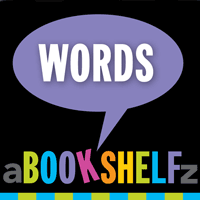 Most Americans spend about $2,000 to $2,500 a week when they go on vacation. Although it is well established that taking a vacation is good for your health, according to a U.S. Travel Association survey, more than 50% of Americans forfeit their paid time off. In the article, “How Taking a Vacation Improves Your Well-Being” in the Harvard Business Review (2023), Rebecca Zucker notes the many benefits of a vacation: (1) mental: greater opportunity for rest and sleep, which unclutters the mind, boosts creativity, and reduces stress, sadness, irritability, and anxiety; (2) physical: reduction in stress hormones and lower blood pressure, allowing immune system to recover, lowering risk of common illness (like colds and flu) and more serious illnesses, like heart disease; (3) soul: escaping the demands of the workday, a person can tune back into their authentic self, and seek inner reflection about the meaning of life and one’s journey. In short, we can say with a great deal of certainty that a vacation is salubrious. Salubrious is defined as favorable to or promoting well-being, health, or wholesomeness. The word is derived from the Latin salubris, meaning “promoting health,” derived from salus (“health, welfare”), which derived from the Proto-Indo-European root sol- (“whole, well-kept”). The word, pronounced “suh LOO bree us,” is often used to refer to the helpful effect of air or climate.
Most Americans spend about $2,000 to $2,500 a week when they go on vacation. Although it is well established that taking a vacation is good for your health, according to a U.S. Travel Association survey, more than 50% of Americans forfeit their paid time off. In the article, “How Taking a Vacation Improves Your Well-Being” in the Harvard Business Review (2023), Rebecca Zucker notes the many benefits of a vacation: (1) mental: greater opportunity for rest and sleep, which unclutters the mind, boosts creativity, and reduces stress, sadness, irritability, and anxiety; (2) physical: reduction in stress hormones and lower blood pressure, allowing immune system to recover, lowering risk of common illness (like colds and flu) and more serious illnesses, like heart disease; (3) soul: escaping the demands of the workday, a person can tune back into their authentic self, and seek inner reflection about the meaning of life and one’s journey. In short, we can say with a great deal of certainty that a vacation is salubrious. Salubrious is defined as favorable to or promoting well-being, health, or wholesomeness. The word is derived from the Latin salubris, meaning “promoting health,” derived from salus (“health, welfare”), which derived from the Proto-Indo-European root sol- (“whole, well-kept”). The word, pronounced “suh LOO bree us,” is often used to refer to the helpful effect of air or climate.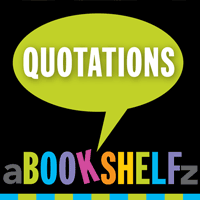

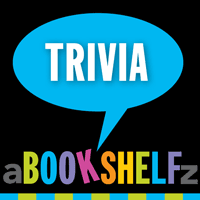
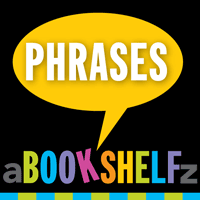

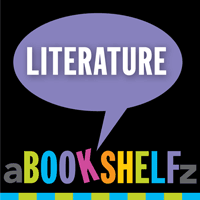

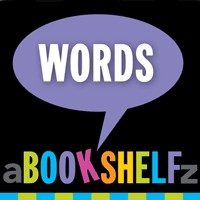 Have you ever looked at a crystal that seems to have an inner glow? Or have you look at a cat’s eyes in dim light or darkness and they seem to glow? Well, there’s a fancy word for that type of shimmering glow: chatoyant. Chatoyant, pronounced “sha TOY ant,” is defined as the changing in luster or color or more precisely, a changeable luster with an oscillating narrow band of white light. In gemology, it has a very specific meaning: the reflecting of a band of bright light reflected when a polished (but not faceted) gem is cut.
Have you ever looked at a crystal that seems to have an inner glow? Or have you look at a cat’s eyes in dim light or darkness and they seem to glow? Well, there’s a fancy word for that type of shimmering glow: chatoyant. Chatoyant, pronounced “sha TOY ant,” is defined as the changing in luster or color or more precisely, a changeable luster with an oscillating narrow band of white light. In gemology, it has a very specific meaning: the reflecting of a band of bright light reflected when a polished (but not faceted) gem is cut.